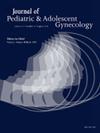5. Evaluating an Adolescent and Young Adult-Focused Medication Abortion Curriculum for Pediatric Trainees
IF 1.8
4区 医学
Q3 OBSTETRICS & GYNECOLOGY
引用次数: 0
Abstract
Background
22 states ban or restrict abortion, limiting access for adolescents and young adults (AYAs) and reducing number of abortion providers. Further, AYA-focused medication abortion (MAB) curricula are lacking. We developed, implemented, and evaluated an AYA-focused MAB curriculum for pediatric trainees (pediatric residents, nurse practitioner students, and medical students).
Methods
Using Kern's Six Steps, we designed a curriculum of four online modules (videos with readings on adolescent pregnancy options counseling, MAB provision, post-abortion care, and harm reduction strategies) and a 2-hour workshop (module review, a values clarification exercise, and a clinical case). Adolescent themes included AYA-specific barriers and health equity concerns, developmental considerations, and confidentiality concerns. 9 workshops were held over the 2023-2024 academic year. Pre- and post-surveys assessed key components of behavior change according to Social Cognitive Theory including learner satisfaction, knowledge, intentions, values, and self-efficacy. McNemar test and Wilcoxon signed-rank test assessed differences in quantitative pre/post results; we analyzed open-ended responses using a thematic content approach. This study received IRB approval.
Results
29 of 53 participants completed both surveys (54%); most learners were pediatric residents (52%) or nurse practitioner students (45%), with one medical student also participating (3%). Learners’ cumulative knowledge score increased after curriculum completion (60% vs 90%; p<.001). Overall intentions to provide, refer, and advocate for MAB did not change significantly (average of 3 questions on a Likert scale 1-5: 4.3 vs 4.3; p=.92). Similarly, learners' feelings around caring for patients seeking abortions did not change significantly (average of 7 questions on a Likert scale 1-5: 4.4 vs 4.4, p=.76). After completion, learners felt fairly or completely confident in counseling on pregnancy (72%) and abortion options (66%), determining medical eligibility (88%), and providing anticipatory guidance (89%). 85% of learners rated the overall curriculum excellent or outstanding. In open-ended responses, learners described the curriculum as highly valuable.
Conclusions
This AYA-focused MAB curriculum improved pediatric trainees' knowledge of MAB management with learners feeling fairly confident or greater to perform key aspects of MAB care after curriculum completion. Intentions to provide MABs did not change significantly, possibly due to high pre-scores. While values scores did not shift significantly, many learners noted this curriculum was a valuable contribution to their pediatric training.
5. 评估以青少年和青年成人为中心的儿科药物流产课程
22个州禁止或限制堕胎,限制青少年和年轻人(AYAs)获得堕胎服务,减少堕胎提供者的数量。此外,缺乏以人工流产为重点的药物流产(MAB)课程。我们为儿科实习生(儿科住院医师、执业护士学生和医学生)开发、实施并评估了一套以青少年免疫疗法为重点的MAB课程。方法:采用Kern的六步骤,我们设计了一个包含四个在线模块的课程(带有青少年怀孕选择咨询、MAB提供、堕胎后护理和减少伤害策略的阅读视频)和一个2小时的研讨会(模块复习、价值观澄清练习和临床案例)。青少年主题包括美国青少年协会特有的障碍和健康公平问题、发展考虑和保密问题。在2023-2024学年期间举办了9次研讨会。调查前后根据社会认知理论评估了行为改变的关键组成部分,包括学习者满意度、知识、意图、价值观和自我效能感。McNemar检验和Wilcoxon sign -rank检验评估定量前后结果的差异;我们使用主题内容方法分析开放式回答。本研究已获得IRB批准。结果53名参与者中有29人(54%)完成了两项调查;大多数学习者是儿科住院医师(52%)或执业护士学生(45%),一名医科学生也参与其中(3%)。完成课程后,学习者的累积知识得分有所提高(60% vs 90%;术;措施)。提供、推荐和倡导MAB的总体意向没有显著变化(李克特量表1-5中3个问题的平均值:4.3 vs 4.3;p = .92)。同样,学习者对照顾寻求堕胎的患者的感受也没有显著变化(李克特量表1-5中7个问题的平均值:4.4 vs 4.4, p= 0.76)。完成后,学习者对怀孕咨询(72%)和堕胎选择咨询(66%)、确定医疗资格(88%)和提供预期指导(89%)感到相当或完全有信心。85%的学生认为整个课程优秀或优秀。在开放式回答中,学习者认为课程非常有价值。结论:该课程提高了儿科学员对MAB管理的认识,使学员在完成课程后对执行MAB护理的关键方面感到相当自信或更强。提供单克隆抗体的意图没有明显变化,可能是由于高预评分。虽然价值观得分没有显著变化,但许多学习者注意到这门课程对他们的儿科培训有价值的贡献。
本文章由计算机程序翻译,如有差异,请以英文原文为准。
求助全文
约1分钟内获得全文
求助全文
来源期刊
CiteScore
3.90
自引率
11.10%
发文量
251
审稿时长
57 days
期刊介绍:
Journal of Pediatric and Adolescent Gynecology includes all aspects of clinical and basic science research in pediatric and adolescent gynecology. The Journal draws on expertise from a variety of disciplines including pediatrics, obstetrics and gynecology, reproduction and gynecology, reproductive and pediatric endocrinology, genetics, and molecular biology.
The Journal of Pediatric and Adolescent Gynecology features original studies, review articles, book and literature reviews, letters to the editor, and communications in brief. It is an essential resource for the libraries of OB/GYN specialists, as well as pediatricians and primary care physicians.

 求助内容:
求助内容: 应助结果提醒方式:
应助结果提醒方式:


